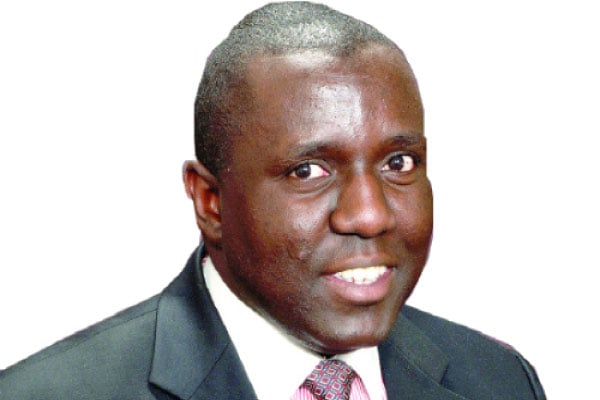Prime
Media can clear dizziness about size of Uganda’s economy then, and now

Odoobo C. Bichachi
What you need to know:
Media therefore has an obligation to attempt to independently clarify this
President Yoweri Museveni threw some quite dizzying figures about Uganda’s economy during his address to the nation on Wednesday at celebrations to mark NRM Day.
He said: “We fought for very serious reasons and that’s why on this 36th NRM anniversary, some report should be given on what’s been achieved. The economy will be $44 billion in July. It was only $1.5 billion in 1986. The economy has grown 29 times since 1986.”
However, many Ugandans – at least going by the discussion on social media – are conflicted about the accuracy of this assertion from a statistical perspective as well as from personal experience and anecdotes living in the country for the last 36 years.
Many will therefore be looking to the media to clear the air one way or the other. Why? The role of the media is not just to report accurately, it is also to explain, to interrogate issues and figures, to provide context, etc. This, it does, by using its unique position as mediator of information to sound out experts, to refer to historical data, and to make comparisons.
Some traditional media do this excellently during election periods by having a Fact-Checker column in which claims and counter claims by competing parties and politicians are interrogated and a verdict – arrived at through research, interviews, et al – is given to audiences. Election periods are times of sloganeering, whitewashing and exaggeration.
But politicians don’t go away after elections have ended. Besides, it is not only politicians that throw around information, many news subjects do. So it is perhaps imperative that media makes Fact-Checkers a standard feature every day or every week to help the public make sense of the information, and confirm facts and figures as claimed or counter-claimed.
Even then, citizen journalists using social media, seem to be taking up the role of asking questions, bringing context and historical data. Of course citizen journalists do not have the reach and trust of traditional media but they can be a good resource and lead for traditional media journalists to pick on and interrogate the issues further, including interviews.
In the instant case, I am drawn to highlight the conversation by three eminent people on Twitter on Thursday morning. First is maverick journalist Timothy Kalyegira who doesn’t hide his disdain for Ugandans (and Africans – on the continent or in diaspora) that he believes are not attuned to inquiry.
He tweeted: “Regarding President Museveni’s claim yesterday [Wednesday] about Uganda’s economy, it was $4.2 billion in January 1986 [not $1.5 billion]. Adjusted for inflation, that is $10.6 billion in December 2021. Uganda GDP in late 2021 was $32.5 billion. So it has grown by three times since 1986, not 31 times as he said…If Uganda’s GDP had grown 31 times since 1986, today Uganda would be Africa’s second-biggest economy, behind Nigeria with South Africa in third place.”
The second is Ugandan scholar Moses Khisa based at North Carolina State University, USA. He tweeted: “One of Museveni’s most consistent and repeated falsehoods! Uganda’s GDP was actually more than $4 billion in 1986 and $6 billion in 1987. The data is there from the powers that control ‘his’ economy (IMF and World Bank), but his lazy aides keep feeding him on falsehood!”
The third is lawyer Daniel Bwambale who heads the Uganda Legal Information Institute. He tweeted: “So @moseskhisa is right. Uganda’s economy was actually $4 billion in 1986. If we account for inflation, that is $10.18 billion in [today’s] US dollars. In that case, Uganda’s economy would have increased only 4.4 times, not 29 times…”
He also shared a comparative graphic of selected countries in the Eastern Africa region between 1986 and 2021.
Many Ugandans will therefore be wondering where the truth is about the country’s development trajectory. All could be wrong or the President could be right, after all.
Media therefore has an obligation to attempt to independently clarify this. When it remains fuzzy, the media itself, citizens and politicians will soon be repeating it and thus establishing it as the “gospel truth”, just like the erroneous claim that Uganda’s economy was at par with that of South Korea and Singapore at the time of independence in 1962 has stuck to this day!
Send your feedback/complaints to [email protected] or call/text on +256 776 500725.




